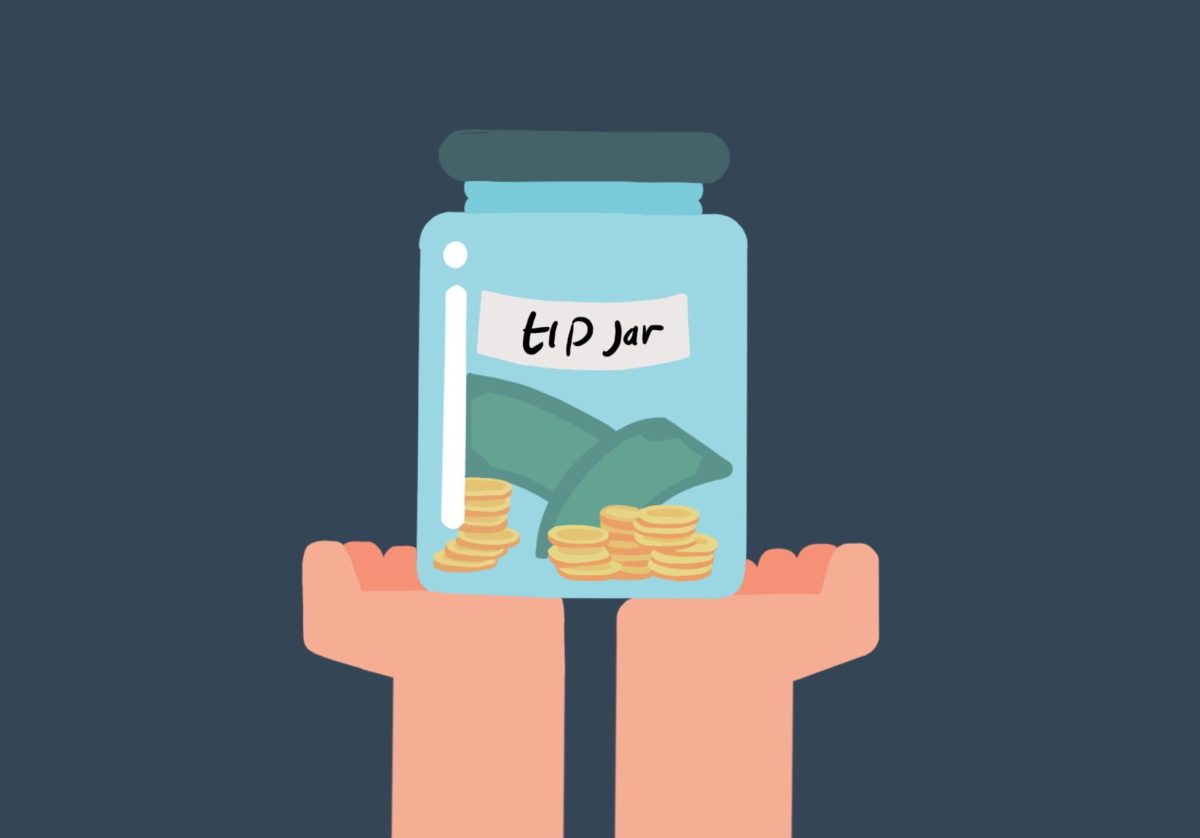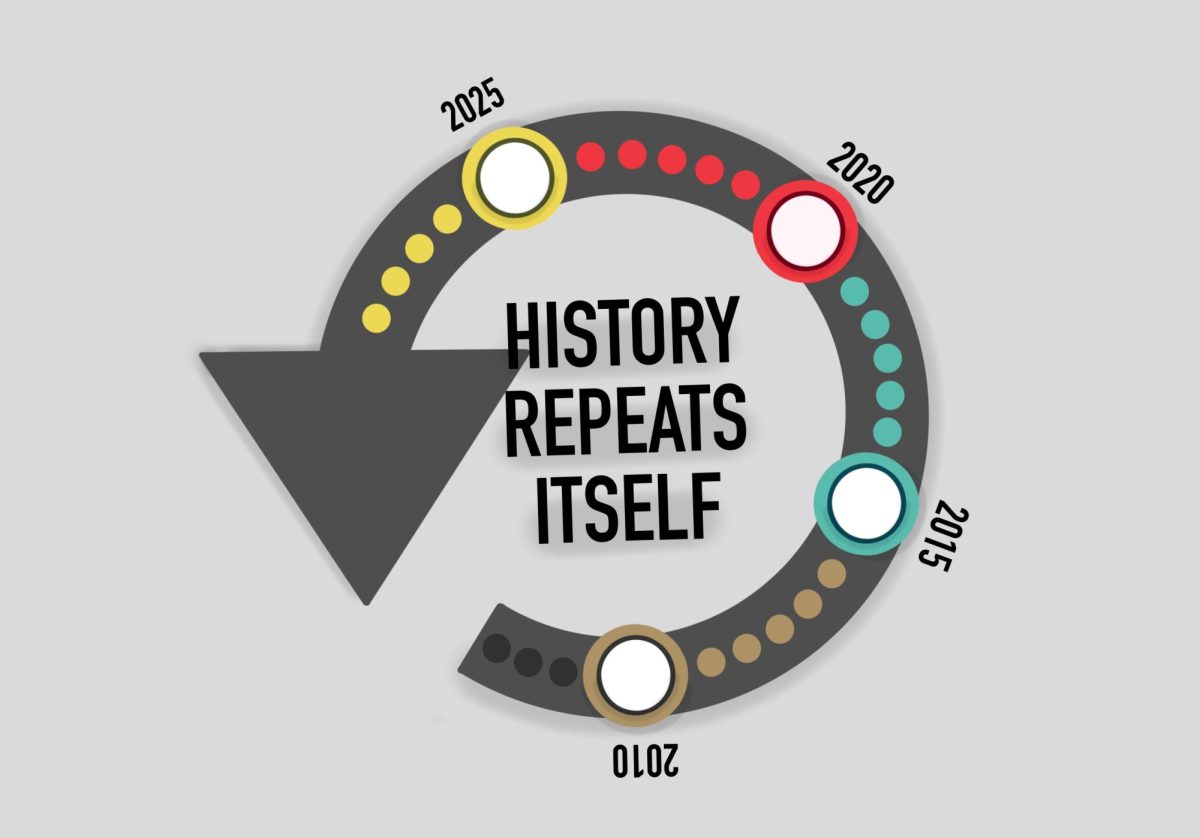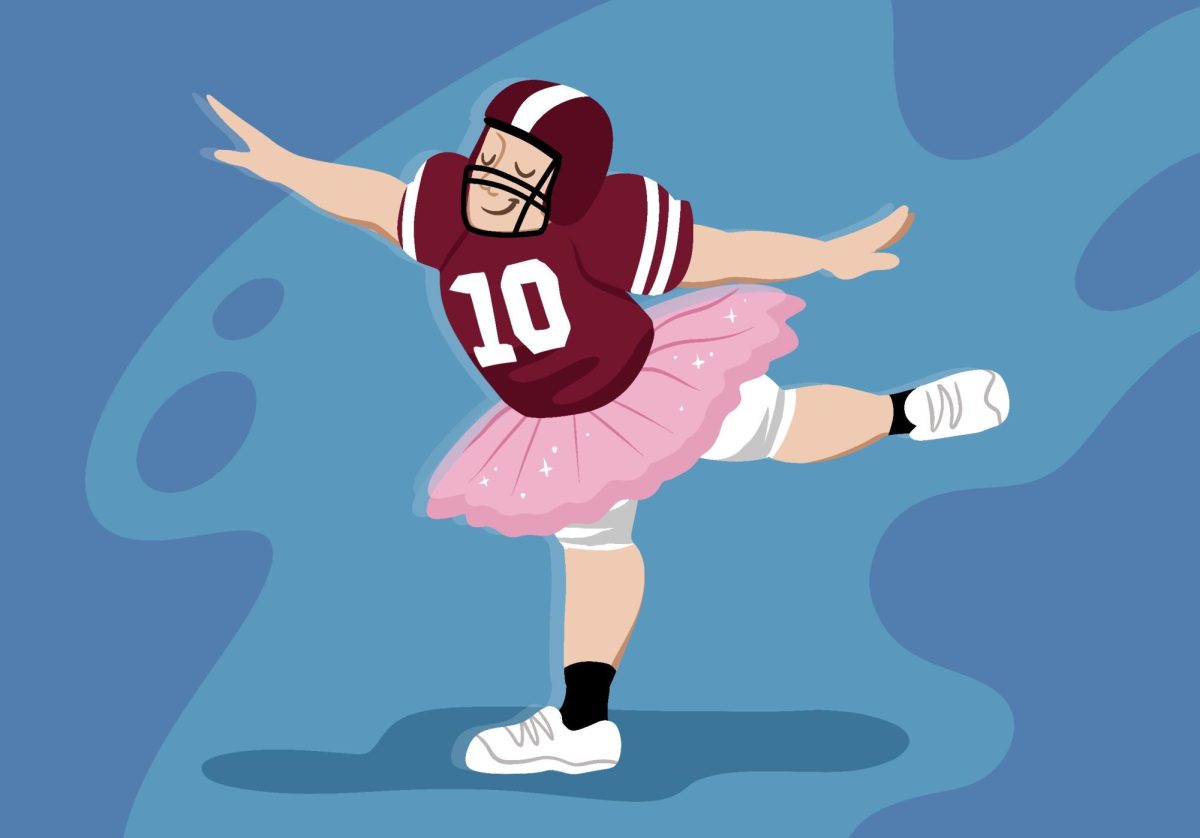I hate tipping.
One of my biggest gripes with American economics is the fact that you never know how much you’re actually paying for anything. For one thing, the vast majority of displayed prices do not include taxes. In most stores, when you look at the price for something, you will actually end up paying more.
Tipping is just another dimension of this galling deception. Your food is one price on the menu and another when your waiter drops off your bill. Of course, it is optional. However, because of America’s vexing societal norms and capitalism’s shortchanging of workers, it doesn’t feel like it.
It all comes back to exploitation — tipping is a very convenient cover for a shady yet widespread business practice. According to Alan Benson, an associate professor at the Carlson School of Management, tips often make up the difference between a pittance and an actual living wage.
“I think some consumers might be surprised to learn that when they go to a restaurant, for instance, the servers can be making less than minimum wage, and the tips cover the difference,” Benson said.
As it stands, tips are a cover for a corrupt and archaic compensation system. This alone is reason enough to question its legitimacy in the U.S., where the cost of living has skyrocketed in recent years. We can look to other countries, many of which do not incorporate tipping at all, for better ways of compensating service workers.
Most other countries do not expect tips as large as the American standard of 15% to 20%. As for the rest of North America, tipping expectations are virtually identical in Canada whereas Mexico asks about 5% less on average.
Many restaurants in Europe include a gratuity fee, and extra tips on top of that are not expected but are 10% less on average. In Denmark, when the service is impressive, the norm is to round up to the next kroner or 10 so the waitstaff can have the extra.
Conversely, some countries do not incorporate tipping at all and may even be averse to it. In Japan, for instance, tips are virtually unheard of. They are not expected, and will usually be returned to the customer. In China, tips are an affront, even illegal in many establishments.
Tipping is commonly defended as an incentive for good service, but it’s clearly not a necessary one if it’s not even used in most countries. If so many other industries have managed to promote high-quality work without tantalizing workers with tips, other industries can do it too. Instead, other benefits incentivize high-quality performance, Benson said.
The best way to guarantee service workers put effort into their jobs may be to simply pay them more. Higher pay has been found to improve overall customer service. Stagnant wages result in comparatively lower-quality service from workers, whereas when wages are increased, consumers report having better experiences.
It makes sense — who doesn’t like making more money? Higher wages are consistently positively correlated with higher job satisfaction, which leads to better performance. But if there’s one thing bosses hate, it’s paying their employees. Because of the 1966 “tipping credit” provision to the Fair Labor Standards Act, employers are free to pay mere pennies as long as the customers pick up the rest.
With all this in mind, it’s obvious that tipping — the socially obligated variety, at least — is useless, and it should be phased out in favor of a fairer compensation system. However, by some bizarre twist of fate, the opposite seems to be happening. Tipping is now an option in even more establishments, most of which never incorporated it in the past.
Technology has streamlined the economy in many ways, bringing quicker and easier ways to pay. But it has come with ridiculous caveats as well. Enter the iPad cash register. Companies such as Square, Toast and Clover have created point-of-service (POS) software allowing businesses to use tablets as ordering and payment terminals.
Most of this software has a tip interface built in. This is useful for businesses that have traditionally incorporated tipping, and it makes the math much easier for customers. But for other businesses, such as cafés, corner stores, yogurt shops and even hospitals, the apparent expectation of a tip is a jarring and unwelcome extra charge.
I can remember the first time I encountered the iPad tip screen. I was ordering bubble tea at Chatime. The transaction was unremarkable until the cashier spun the POS around with a screen asking how much I wanted to tip.
“Tip for what?” I thought to myself, but with the numbers staring me in the face, I felt I had no choice but to tap the 15% button, at least.
This trend is just another aggravating quirk of the trainwreck that is American capitalism. Of course, people working in cafés and corner stores probably aren’t making enough money — not so little they need extra to meet the minimum wage but enough to guilt people into throwing them the extra cash when asked.
Guilt is built right into these interfaces.
“You’ll notice that oftentimes, the percentages are reverse-ordered,” Benson said. “That’s based on a psychological bias, a heuristic called anchoring, so tips will usually be higher because people anchor on higher numbers like 25% or more.”
I don’t think anyone should feel compelled to tip workers who earn at least the minimum wage, as low as it is, and do work that doesn’t involve extensive interaction with and care for customers.
While it’s important to appreciate everyone’s contributions, consumers shouldn’t need to tip workers who have never received tips before, and frankly, nobody should have to receive them. The crux of this issue is the fact that nobody is getting paid enough anyway.
The difficult thing is solving this scourge. I don’t want to say, “Don’t tip anyone!” Tip if you want to. But the problem won’t go away without higher wages across the board, especially in restaurants and bars paying less than the minimum. Instead of tips, a standard, optional gratuity fee, like in Europe, could be part of the bill. That would be quicker and easier — no debating how much the staff deserve, and no math, either.
When I face an iPad in a fast-food joint, an auto shop or a self-checkout, I now tap “No tip.” In the meantime, we should all advocate for higher wages, and hopefully, one day, nobody will need tips at all.















Augie
Oct 25, 2023 at 10:05 am
Hello,
While I do agree with you that numerous organizations (ie fast food and other large-scale corporations) exploit the customer and employee, I find it sardonic to say “tipping sucks” in a culture where many single-owner restaurant employees fall victim to tipping fatigue. Articles like this are ostensibly good in theory; however, they lead to individuals tipping less in jobs where it hurts the most.
Not addressing the nuances of server/bartender pay and how 10% vs 20% tip average is the difference of that individual making a car payment. It is frustrating to me that other corporations have exploited this system, and now I, and many other service industry workers, bear the unjust culpability of being greedy for expecting a tip—tips paid for my graduate school applications, rent, utilities, and so much more.
As a service worker, I can expect to make 30-45$ an hour busting my a** for 5-8 hours. All while the hours being flexible enough for me to be a full-time student and hold down a second job. I wonder if restaurants can afford to pay individuals that level hourly, nor do I envision high-quality restaurant workers sticking around for half the pay.
With frustration,
Augie